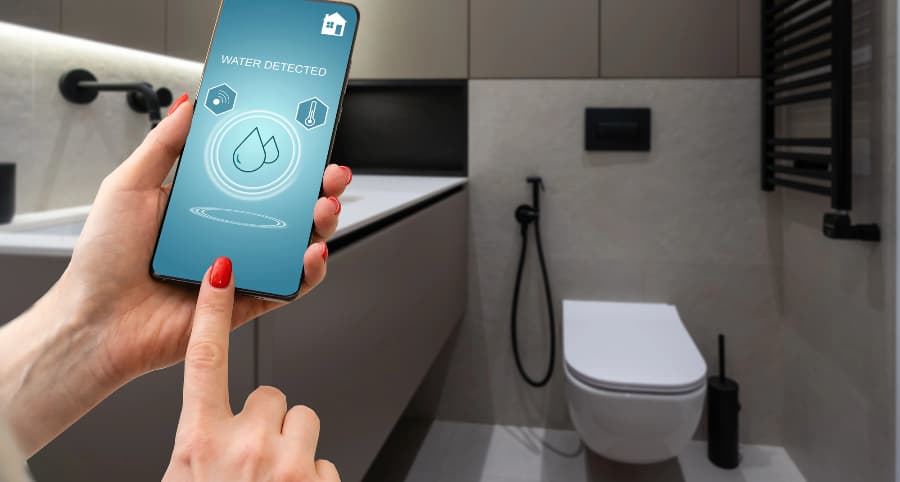How does a water sensor work and why connect one to your New Orleans smart home?

One tiny leak in your home can lead to significant issues and thousands of dollars worth of damage. You have to safeguard against this threat; luckily, there’s a straightforward way to achieve this. A water sensor is an effective, simple, and affordable solution. See how they work and why you ought to connect water sensors to your New Orleans smart home.
How water sensors safeguard New Orleans homes
Water enters homes in various ways, whether from a broken appliance, plumbing failure, storm-related event, or simple human error. Whatever way it happens, you need to know immediately, and this is where water sensors come in. But how do they really work?
Many water sensors are conductive and function with corresponding electrodes. When water enters the area between the electrodes, an electrical circuit is formed, triggering your alarm. You’ll also discover capacitive sensors that release an electrical field. When water contacts the conductive parts of these sensors, the field is disrupted, and your alarm activates. Optical sensors employing infrared LED light are another possibility.
Some water sensors give you more
Certain advanced water sensors give you even more peace of mind as they feature built-in temperature sensors. This is an effective way to prevent frozen pipes. If there’s an extreme decrease in temperature, you’ll find out immediately. Taking steps before pipes burst will save you from water infiltration and exorbitant repair costs.
Why integrate water sensors into your New Orleans smart home?
When water emergencies arise, you must be notified at once. You can reach this aim by incorporating water sensors into your smart home. Whether you’re home to hear the alarm or somewhere else, you’ll get an instant notification on your smartphone. As an additional backup, your 24-hour monitoring team will be alerted. Every moment is critical in a water emergency to control the damage and disruption to your life.
Where should you install water sensors?
Any location at risk of flooding is a suitable place for water sensors. Consider installing in these locations:
- Bathrooms: Position next to tubs or behind toilets.
- Basements: Water commonly infiltrates lower floors via damaged walls or as a result of heavy rain or malfunctioning sump pumps.
- Around water heaters or appliances: Any water-using appliance could leak over time.
- Under sinks: Water sensors are perfect for discovering leaky pipes in locations not easy to see.
- Attics: Catch roof leaks early and avert expensive repairs.
Request water sensors with your Vivint smart home
Give your property the comprehensive protection it requires with innovative components from Vivint. Our water sensors in New Orleans connect to your Vivint smartphone app to send you instant alerts when your alarm activates. You also get built-in temperature sensors to avert frozen pipes. Learn more about the smart home components available in New Orleans by dialing (504) 285-9448 today.